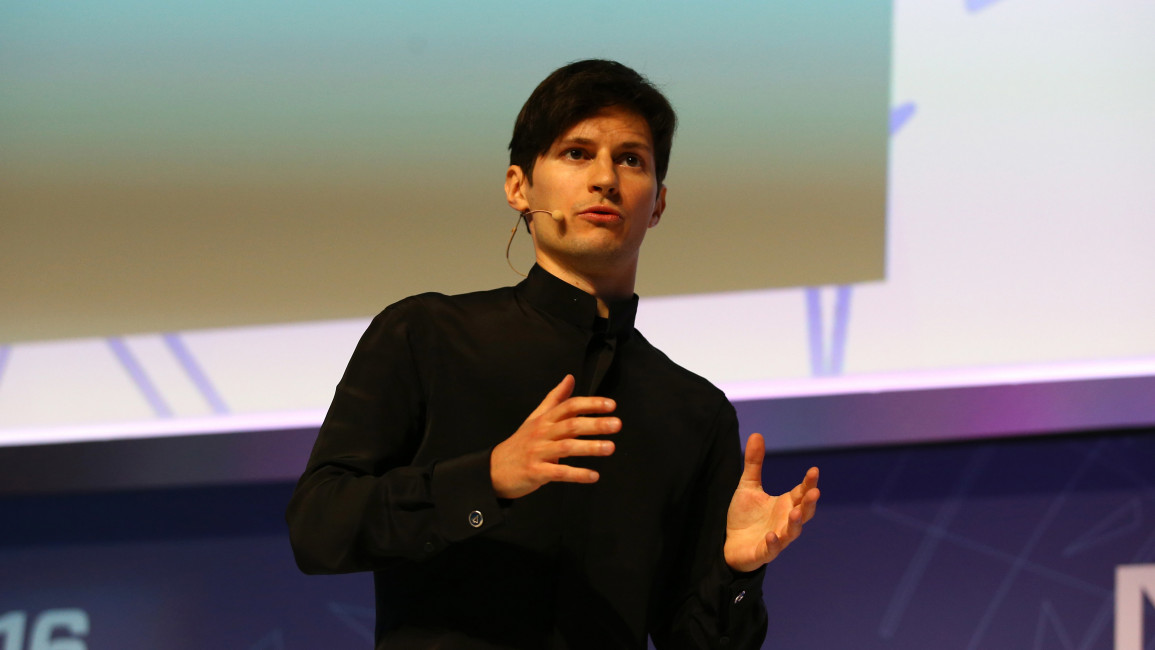Who is Telegram CEO Pavel Durov, and why did France arrest him?
Telegram founder Pavel Durov has caught the world's attention after being detained in France on Saturday, accused of failing to combat crime on his messaging platform.
The 39-year-old tech billionaire, hailed by some as the "Russian Zuckerberg", has never returned to his country of origin after a falling out with the Kremlin.
The platform proved hugely popular among Russian-speaking users, and by February 2007 had a user base of over 100,000. By December 2008, VK had over 10 million users and had overtaken the Odnoklassniki platform to become Russia's top social networking site.
When anti-government protests gripped Russia in 2012, Durov refused to close down pages used by Putin critics to organise rallies. The decision won him popularity among the opposition, however, would spell the end of his time at VK.
In 2014, Durov sold his shares in the platform and left Russia after refusing to hand over users' personal data to the country's FSB security services.
“So Long and Thanks for All the Fish” Durov wrote in his sign-off message on VK - a reference to the Hitchhiker’s Guide to the Galaxy comedy sci-fi series.
Moving to Dubai, Durov obtained citizenship of the Caribbean state of St Kitts and Nevis as well as French and Emirati passports.
Operating from Dubai, he continued the development of his Telegram messaging platform — an app that promised higher levels of confidentiality through encrypted messaging. A self-styled libertarian champion of free speech, Durov resisted calls for censorship and invasive moderation on the app.
Unlike VK, which gained the most traction among the states of the former Soviet Union, Telegram proved a global success.
The anonymity of users made it a popular choice among opposition activists around the world, including in Iran, Hong Kong and Russia.
Several states, including Russia, have moved to block or restrict the use of the app, with limited success. Despite blocking the app in 2018, Russia has now allowed its use, with both government and opposition figures using the service to deliver news.
The app has also been used by both pro-Moscow and pro-Ukraine camps to deliver news on the ongoing war in Ukraine.
In Gaza, Hamas has used the app to share official statements and battlefield updates from the group's armed wing.
During the course of its war on Gaza, an Israeli army psychological operations unit set up the '72 Virgins' channel, where the unit shared gory images of dead Palestinians to Israeli users with celebratory captions.
The app has also been used by the Islamic State group as well as global networks sharing images of child abuse and drug dealers.
However, Durov has remained committed to his vision for the app, emphasising its focus on privacy and independence.
“[People] love the independence. They also love the privacy, the freedom, [there are] a lot of reasons why somebody would switch to Telegram,” Durov told right-wing US political pundit Tucker Carlson.
Despite the popularity of his platforms, Durov has maintained an aura of mystery, rarely giving interviews and carrying out extravagant public stunts. Through Telegram, Durov has given glimpses into his seemingly quiet lifestyle, in which he abstains from caffeine, meat and alcohol.
In a post on Telegram in July, Durov shocked followers with a claim that he had fathered over 100 children through sperm donation, with plans to "open source" his DNA for his children to find out who their father is.
His arrest in Paris over alleged fraud, drug trafficking, cyberbullying, organised crime and promotion of terrorism has seemingly drawn the ire of Moscow, while the anti-Kremlin opposition appears split.
The Kremlin warned Paris on Tuesday against trying to intimidate Durov.
"The charges are indeed very serious, they require no less serious evidence," Kremlin spokesman Dmitry Peskov said.
Meanwhile, many Kremlin critics called France's actions an assault on the freedom of speech, while others said Telegram should become more responsible.
In a statement posted on its platform after his arrest, Telegram said it abides by EU laws, and its moderation is "within industry standards and constantly improving".







 Follow the Middle East's top stories in English at The New Arab on Google News
Follow the Middle East's top stories in English at The New Arab on Google News
![Lebanon after strikes [Getty]](/sites/default/files/styles/image_330x185/public/2184409977.jpeg?h=a5f2f23a&itok=7wpfQMyI)
![G20 Brazil [Getty]](/sites/default/files/styles/image_330x185/public/2184389194.jpeg?h=a5f2f23a&itok=t1DchCMY)
